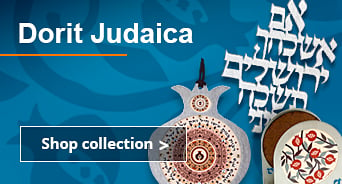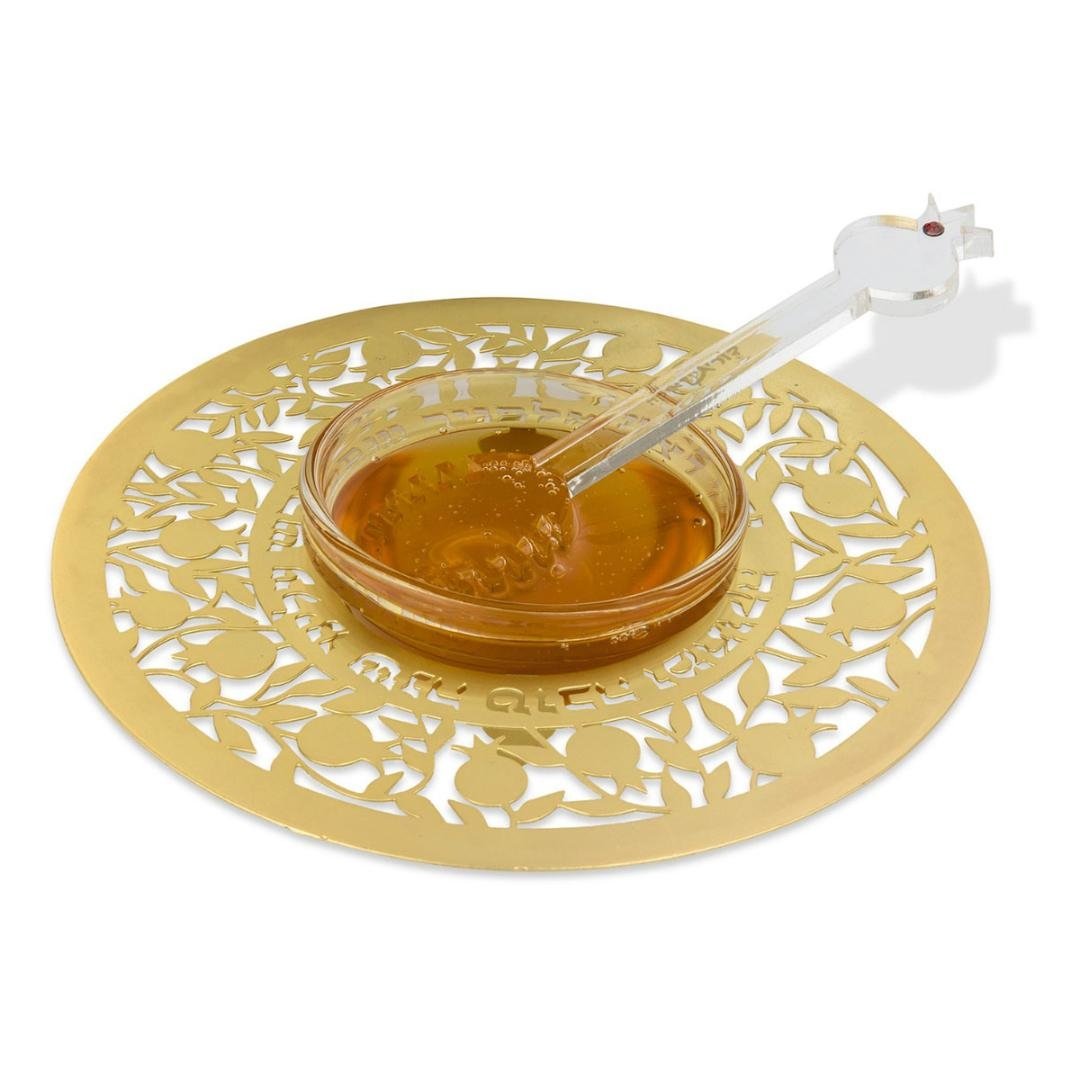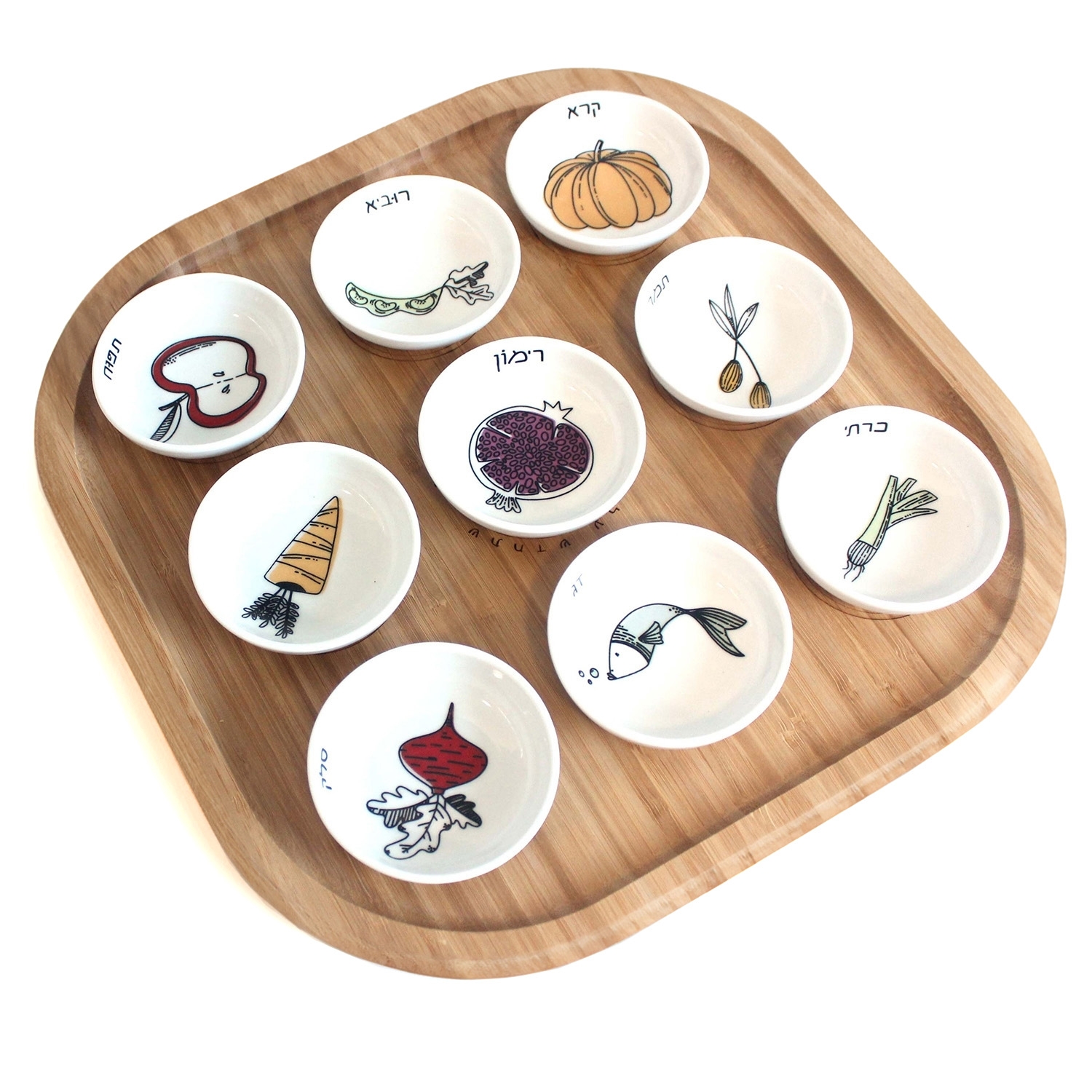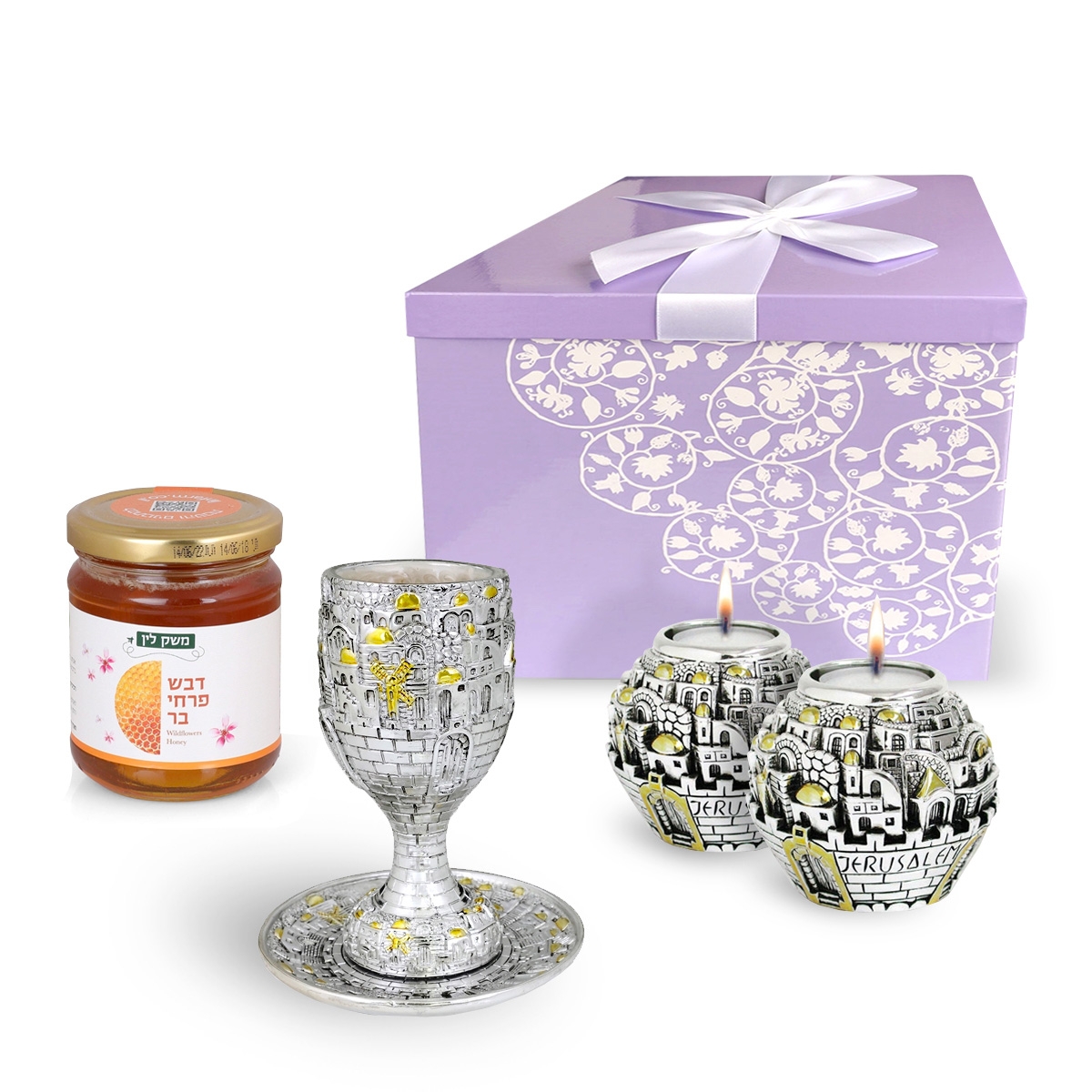
Shana Tova! Apples and honey are an essential part of the Rosh Hashanah dinner, those two types of sweetness that symbolize the both the blessings that G-d gives freely and those blessings that come as a reward for our toils. Choose one of our honey dishes for your own celebration or as a gift for a family that you're close to.
From Neo-Classical Splendor to Artisanal Flair
Judaica Webstore offers a diverse selection of honey dishes, from the elegant, neo-classical designs of Karshi, to the colorful, contemporary pieces of Jerusalem-based Yair Emanuel. Each of our honey dishes, among the most iconic Rosh Hashanah symbols, incorporates motifs into its design that celebrate both the hope for a sweet new year as well as our relationship to Israel. Browse through our selection to see the different ways these artists have incorporated elements like the pomegranate and the Jerusalem cityscape into their designs to create functional objects that also resonate symbolically.
The Cultural Legacy Carried Inside the Design
The labor invested into our dishes also tells its own story, whether that's the legacy of Hazorfim Silver, one of the world's premier silversmithing workshops, founded in Israel in 1952 by Eastern European craftsmen, or the buzz of Israel's new class of homegrown craftsmen and women. Similarly, the material the artists choose can be just as significant, such as Lily's painted glass that emphasizes the playful sense of whimsy which characterizes contemporary Israeli craft, or Shraga Landesman's cast and cut metal objects that comment on Israel's relationship to industry. Or perhaps the Shana Tova Jerusalem Stone honey dish that employs the very flesh, as it were, of the holy city. Remember that your purchase not only enriches your own family's experience of this holiday, but it also contributes to a long standing artisan tradition responsible for visually interpreting and handing down our rich cultural heritage.
And of course, we offer wild flower honey that comes straight from Kibbutz Yad Mordechai, located in southern Israel, 10 kilometers south of Ashkelon.












